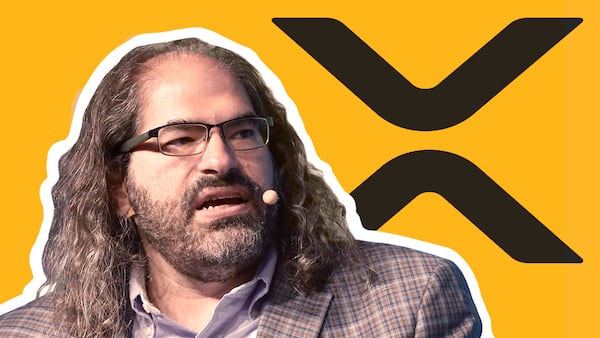- Ripple is setting up a new academic advisory council.
- The firm's CTO David Schwartz will join it.
- The council will advance technical innovation and research that are relevant to Ripple’s products.
On Monday, Ripple announced plans to set up a new advisory council of researchers to strengthen its presence in academia.
The move falls under Ripple’s University Blockchain Research Initiative, which provides technical resources and financial support for academic research in blockchain technology.
XRP co-creator and Ripple chief technology officer David Schwartz will join the group, which includes academics from Trinity College Dublin, Nanyang Technological University, Hanyang University, and the University of Luxembourg.
“For blockchain to truly evolve, we need a constant exchange of ideas between those building the technology and those studying its future,” Schwartz said in a statement.
“We’re deepening that collaboration, bringing together academic researchers and Ripple engineers to explore new applications for XRP and its native chain that can ultimately move this growing ecosystem forward.”
The move comes amid an American crypto industry boom on the back of President Donald Trump shepherding in more favourable regulations.
Wall Street institutions are piling into digital assets, creating their own stablecoins, tokenising debt, and upgrading internal systems with blockchain technology.
The increased interest in the financial sector is spilling over into academia. More universities have started running blockchain courses and conducting research in recent years, a trend Ripple is eager to leverage.
Schwartz is set to step down as CTO at the end of the year, but has said he will remain involved with Ripple.
University of San Francisco
In addition to Ripple’s new advisory council, the firm is also collaborating with the University of San Francisco.
The university’s Center for Law, Tech, and Social Good will explore how blockchain legislation can support innovation, with the goal of publishing public-facing research and policy recommendations.
At the same time, the Department of Computer Science will run an XRP Ledger validator, software that processes transactions on the blockchain.
To fund these efforts, and those at other partner universities, Ripple said it has distributed $1.5 million worth of grants this year.
The firm’s other research initiative partners include the University of Michigan, University of Wyoming, UC Berkeley, University of São Paulo, and Duke University.
Ripple said it has supported more than 60 universities worldwide and committed over $80 million in research funding since 2018.
Crypto and academia
Ripple isn’t the only blockchain organisation cosying up to academia.
Last week, Tron DAO, a group that helps run the Tron blockchain, announced new collaborations with blockchain organisations at Columbia University and Harvard University.
Input Output, the company that designed and built the Cardano blockchain, also has strong academic-industry ties.
The firm has collaborated with the University of Edinburgh since 2015, pursuing research and development on Plutus, the native smart contract language for Cardano, and zero-knowledge proofs.
The Cardano foundation, a nonprofit that supports the Cardano blockchain, has also partnered with the University of Zurich to sponsor a PhD position in Blockchain Analytics.
Tim Craig is DL News’ Edinburgh-based DeFi correspondent. Reach out to him with tips at tim@dlnews.com.








